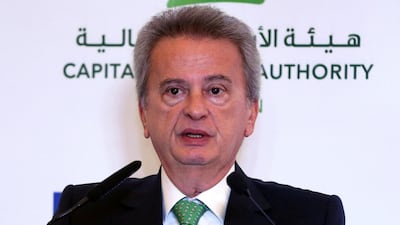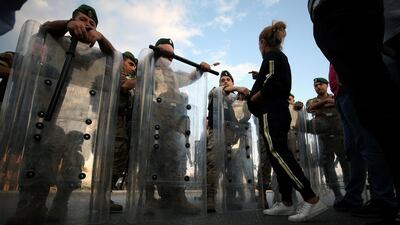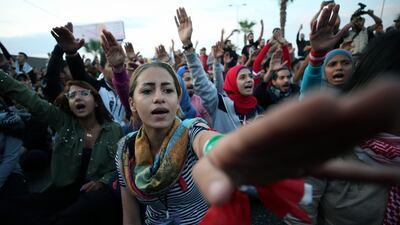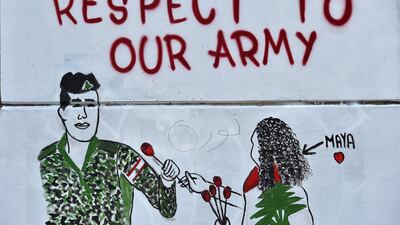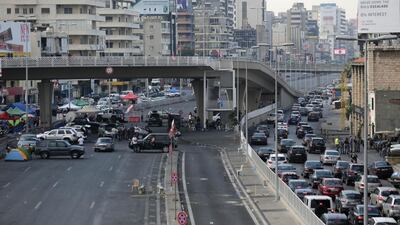The governor of Lebanon’s central bank on Monday called for an urgent solution to the country’s economic crisis to prevent a future collapse.
Riad Salameh warned that the economy was “days” from collapse and called for a rapid change in government to satisfy protesters who have filled the streets for 12 days, forcing banks to close.
In unusually strong comments, Mr Salameh told CNN a change in government was needed to restore confidence and ensure that money coming in from Lebanese expatriates did not dry up.
But Mr Salameh later eased back on some of his comments.
"I am not saying that we are going to have a collapse in a matter of days," he said.
"I am saying we need to have a solution in a matter of days to regain confidence and avoid collapse in the future."
Mr Salameh said the local currency's peg to the dollar would be maintained and that when banks in Lebanon reopened, "there is no capital control and no haircut".
He had earlier said: “It’s a matter of days because the cost is heavy on the country.
“But more important we’re losing every day more and more confidence. And finance and the economy is all about confidence."
Schools, banks and most businesses remained closed on Monday, raising concerns that many Lebanese would not be able to receive their salaries at the end of the month.
There are also fears of a run on the banks that could further deplete the country’s limited supply of foreign currency, affecting its ability to import wheat, fuel and medicine.
The Association of Banks in Lebanon said banks would remain closed on Tuesday for a 13th consecutive day “in light of the continuation of popular movements and awaiting the stabilisation of general conditions".
But the banks said they were determined to pay public sector salaries, especially to members of the security forces, and had enough liquidity to do it.
In the latest sign of crisis, ATMs have mostly stopped dispensing US dollars, which have long been a widely accepted second local currency.
That has added to concerns that the government may no longer be able to maintain a fixed rate of exchange with the Lebanese pound.
Long before the protests began, the country’s economy was already suffering from a massive budget deficit and rising unemployment.
Its debt ratio of $86 billion (Dh315.8bn) is one of the highest in the world, accounting for more than 150 per cent of gross domestic product.
The protesters blame the economic crisis on political leaders from various religious sects and factions who have dominated the country since the civil war.
They say the sectarian power-sharing arrangement that ended the war brought networks of corruption, patronage and nepotism that depleted the treasury and gutted public services.
